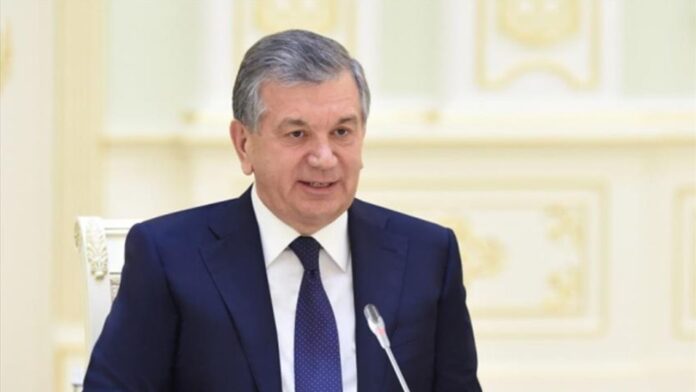Uzbekistan, the most populous country in Central Asia, has undergone a remarkable transformation over the past few years under the leadership of President Shavkat Mirziyoyev. Mirziyoyev came to power in 2016 following the death of the country’s long-time authoritarian ruler, Islam Karimov. While initially seen as maintaining continuity with his predecessor’s policies, Mirziyoyev has surprised many observers by launching wide-ranging reforms to open up and modernize this formerly isolated nation.
Improving Foreign Relations
One of Mirziyoyev’s first acts as president was to relax strict currency controls, enabling Uzbek citizens to buy and sell foreign currency for the first time in over two decades. This small but significant reform made it easier for Uzbeks to travel abroad and for local businesses to trade with the outside world. It signaled that Mirziyoyev was serious about dismantling his predecessor’s Soviet-style command economy.
The new president also took steps to rebuild Uzbekistan’s ties with its Central Asian neighbors, which had frayed under Karimov’s isolationist policies. In March 2018, Mirziyoyev visited Tajikistan, where he and Tajik President Emomali Rahmon signed 27 cooperation agreements and declared their intention to double bilateral trade. Relations with nearby Kyrgyzstan, Kazakhstan, and Turkmenistan have also strengthened considerably thanks to frequent state visits and Mirziyoyev’s friendly overtures.
Political and Anti-Corruption Reforms
However, Mirziyoyev’s boldest reforms have focused on opening up Uzbekistan’s political system and cracking down on corruption. While still retaining a high degree of executive power, Mirziyoyev has reined in the feared National Security Service, dismissed several of its top officials, and ordered the release of dozens of people imprisoned under Karimov for their religious or political views. In a direct appeal to citizens, Mirziyoyev lamented rampant corruption among local officials and announced the creation of a complaints hotline that Uzbeks could use to report graft and abusive bureaucrats.
These anti-corruption measures, combined with frequent public addresses criticizing local authorities for neglecting people’s needs, have made Mirziyoyev much more popular at the grassroots level than his remote, heavy-handed predecessor. Mirziyoyev has also decentralised decision-making by delegating more economic policymaking powers to regional governors.
Improving Lives and the Economy
Mirziyoyev’s reforms have already yielded real improvements in Uzbeks’ daily lives. Over 11,000 citizens had their names removed from blacklists, preventing them from traveling abroad in the first three years of Mirziyoyev’s rule. The opening up of the economy led to a boom in entrepreneurship, with 200,000 small businesses launching between 2016 and 2020. Uzbekistan has cut red tape to boost foreign investment, introduced tax holidays for businesses, and held investment roadshows promoting the country’s strengths in sectors like mining, textiles and agribusiness.
The government has built new affordable housing complexes and increased pensions and public sector salaries to reduce poverty. A public health care reform extended coverage to 7.5 million more citizens by making family clinics the system’s cornerstone. To reverse Uzbekistan’s brain drain, Mirziyoyev has boosted university scholarships, increased research funding and opened branches of foreign universities in Tashkent.
Challenges Remain, But the Future is Bright
Despite this remarkable progress, Uzbekistan remains a work in progress. Mirziyoyev recently won a second five-year term in office, promising to continue opening up the political system through measures like strengthening parliament, liberalizing the media environment and allowing peaceful protests. The economy still requires major upgrades in technology and efficiency to provide enough jobs for Uzbekistan’s growing population. And vestiges of authoritarianism like censorship and harassment of NGOs persist.
But by all accounts, Uzbekistan today is a far freer, more prosperous and more optimistic place under Mirziyoyev’s leadership. The first five years of his presidency have shown that this key Central Asian nation is embarking on a new trajectory that could make it a model for gradual, steady reform across the former Soviet region. As long as Mirziyoyev sustains the pace of change and resists any temptations toward repression, Uzbekistan’s future looks bright. The Uzbek president deserves great credit for using his mandate to usher in a new era of openness and dynamism that scarcely seemed possible just a few years ago.
FAQs
Some of Mirziyoyev’s biggest reforms were relaxing currency controls, rebuilding ties with neighboring countries, cracking down on corruption, releasing political prisoners, decentralizing economic policymaking, and liberalizing the media environment.
Uzbeks have benefited from increased entrepreneurship and business opportunities, more affordable housing, higher pensions and salaries, expanded healthcare coverage, greater educational opportunities, and fewer restrictions on traveling abroad.
Mirziyoyev has cut red tape, offered tax holidays for foreign businesses, held international investment conferences to promote Uzbekistan, and made it easier for foreign companies to operate in the country.
Experts say Uzbekistan still needs more technological upgrades, economic reforms to create jobs, strengthening of democratic institutions like parliament, greater press and NGO freedoms, and continued anti-corruption efforts.
Mirziyoyev has prioritized rebuilding ties with Central Asian neighbors and has also cultivated relations with the U.S., Europe, China, South Korea and the Gulf states to diversify Uzbekistan’s international partnerships.
If Mirziyoyev stays committed to gradual, steady reforms, Uzbekistan could become a model in the region for sustainable political and economic opening. The country seems to be on a more positive long-term trajectory.









